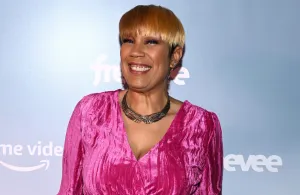Google and Roku have reached a new deal that will keep YouTube TV and YouTube available via Roku for years to come. Over the last few months, the two companies have been at odds over their new contract, with Roku publicly accusing Google of trying to take too much user data and bend Roku’s recommendation process in its favor. According to a report by The Wrap, they have agreed on a deal, but the terms of the agreement have not been disclosed.
“Roku and Google have agreed to a multi-year extension for both YouTube and YouTube TV,” read a public statement from Roku published on Wednesday. “This agreement represents a positive development for our shared customers, making both YouTube and YouTube TV available for all streamers on the Roku platform.” The battle between these two media giants goes back to April, when their deal for the distribution of the YouTube TV app expired. They negotiated fiercely in the time since then, but the expiration of the deal for the YouTube app itself was on Thursday, Dec. 9.
Videos by PopCulture.com
So far, the stalemate between the two companies has not impacted any existing subscribers to YouTube TV. The only consequence was that new customers could not download the app if they wanted to. The same would have been true for the regular YouTube app if this deal hadn’t been reached.
Roku explained the negotiations directly to users in a company blog post last month. It said: “Importantly, our concerns with Google are not about money. We have not asked for a single change in the financial terms of our existing agreement. In fact, Roku does not earn a single dollar from YouTube’s ad-supported video sharing service today, whereas Google makes hundreds of millions of dollars from the YouTube app on Roku.”
Roku was more concerned about Google’s new requests for the Roku search algorithm. The post said that Google wanted to “interfere with Roku’s independent search results, requiring that we preference YouTube over other content providers.” It was also “demanding search, voice and data features that they do not insist on from other streaming platforms.”
Again, the details of the deal that the two companies ultimately struck have not been made public, so it’s not clear if Google ultimately got its way on these issues. Meanwhile, the case has reportedly caught the attention of some members of congress, who want to investigate whether Google’s requests were “anticompetitive” and violated antitrust laws. Google responded to Roku last month by saying that its claims were “unproductive and baseless.” The company did not add its own statement to the announcement on Wednesday.








